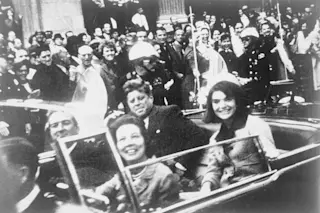Courtesy Library of Congress. Today marks the 50th anniversary of the assassination of President Kennedy. In the wake of traumatic events like these, people often band together in response to their shared loss. But the results aren't always rosy. After the death of JFK, many people wanted to find something or someone to blame, be it politics or conspiracies or each other. Dallas bore the brunt of this finger-pointing, and became known as "the city of hate." The negative effects on the city's psyche raised Dallas's rates for murder, suicide, and even heart attacks. Steven Davis, a historical writer and curator in Texas, addresses the issue in his recent book, Dallas 1963, about the evolution of the city's character in that pivotal year. In an interview with the Guardian, Davis said that the people of Dallas were under severe psychological stress after the assassination, and it manifested in their physical ...
Why Kennedy's Assassination Increased Heart Attacks in Dallas For Years Afterward
Explore the Kennedy assassination effects on Dallas, including increased murder and suicide rates, and its long-term health impacts.
More on Discover
Stay Curious
SubscribeTo The Magazine
Save up to 40% off the cover price when you subscribe to Discover magazine.
Subscribe













